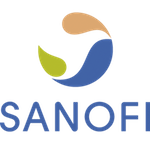Catalina Council Boy Scouts Partner With Sanofi US Tucson Research Center
Jan 26, 2012 11:00 AM ET
(3BL Media / theCSRfeed) January 26, 2012 - The Catalina Council of the Boy Scouts of America announced today that approximately thirty Boy Scouts in Arizona will complete the Chemistry Merit Badge requirements through an event hosted by the Sanofi U.S. Research Center based in Oro Valley, Arizona. Boy Scout participants will have the chance to interact with leading healthcare industry biologists and chemists, under whose guidance they can participate in activities geared toward badge completion.
"We are proud to partner with Sanofi to pioneer this Chemistry Merit Badge program to further develop the scientific knowledge and interest of our Scouts," said Justin Rice, District Director, Catalina Council, Boy Scouts of America. "Working with one of the leading healthcare companies to develop one-of-a-kind programs like this allows us to continue to help young men reach their individual goals and underscores the commitment of the Scouts to our community." This Chemistry Merit Badge Day, developed jointly by the Catalina Council and Sanofi U.S., will provide 30 Boy Scouts between the ages of 11 and 16 the opportunity to rotate through five stations focused on chemistry in the Sanofi labs. As the Scouts journey from station to station during the day, they will learn about personal protective equipment, gases, solids and liquids, and how matter changes with environmental conditions, among other topics. "We are proud to support the Boy Scouts in our community through the Chemistry Merit Badge program and look forward to increasing interest in science among Arizona's youth," said Mark Pincus, Research Investigator, Biochemistry & Cell Biology, Early to Candidate Unit, Sanofi U.S., a former Boy Scout and current Assistant Scoutmaster of Troop 299 in Oro Valley, AZ. "Our state-of-the-art R&D facilities provide an ideal setting for completing the requirements for the Chemistry Merit Badge. Everyone on the team is passionate and energized to share what we are doing and to demonstrate scientific applications in both academic and industrial settings." The Chemistry Merit Badge is an academic merit badge that meets specific requirements outlined by the Boy Scouts of America. It is one of the many vehicles the Boy Scouts offer so that boys and young men are not only rewarded for their achievements but grow in self-reliance and in the ability to help others. There are more than 100 merit badges available through the Boy Scouts of America, in areas as diverse as Citizenship in the Community, Composite Materials and Medicine. About the Boy Scouts of AmericaThe Boy Scouts of America provides the nation's foremost youth program of character development and values-based leadership training, which helps young people be "Prepared. For Life.™" The Scouting organization is composed of 2.7 million youth members between the ages of 7 and 21 and more than a million volunteers in nearly 300 local councils throughout the United States and its territories. For more information on the Boy Scouts of America, please visit www.scouting.org. About the Catalina Council
The mission of Catalina Council is to prepare young people to make ethical choices over their lifetimes by instilling in them the values of the Scout Oath and Law. We offer programs and activities that instill values and teach life skills to an ever increasing number of youth by coordinating community resources to build tomorrow's leaders today. About the Sanofi Tucson Research Center
The Tucson Research Center is part of the Sanofi North America R&D Hub and has about 100 employees. The site's primary area of expertise is Lead Generation employing high-throughput chemistry and biology, supported by innovative approaches in analytical chemistry and informatics. This capability is held within the Sanofi Combinatorial Technologies Center, which specializes in small molecule discovery for challenging targets (succeeding where others have failed). The site has critical and unique expertise in solid-phase chemistry and early phases of translational discovery. The site also explores the creation of "mini-proteins," a new class of therapeutic agents that could target formerly impossible targets. The early research conducted at the TRC provides high-quality leads to research projects in North America and global R&D.
SANO20383

